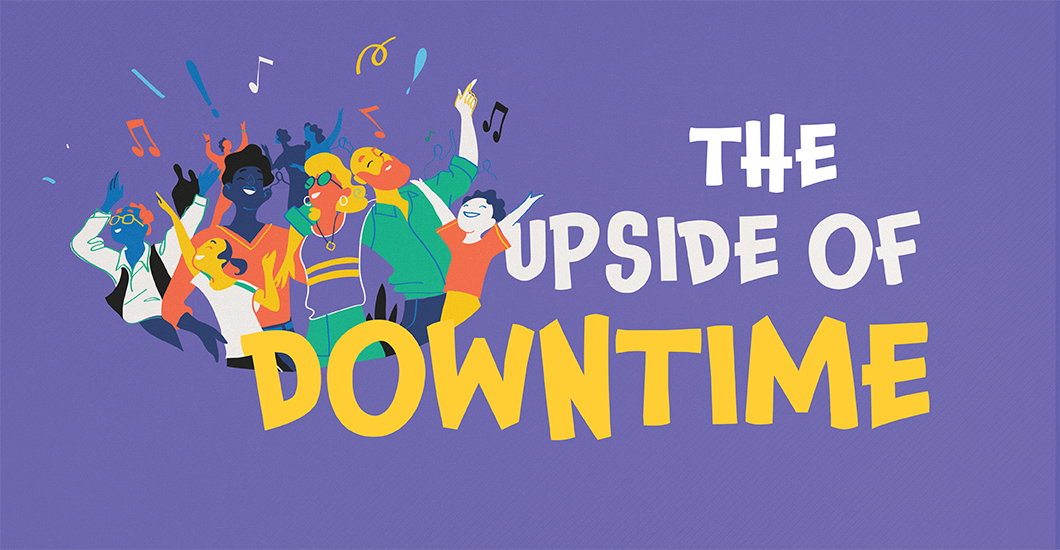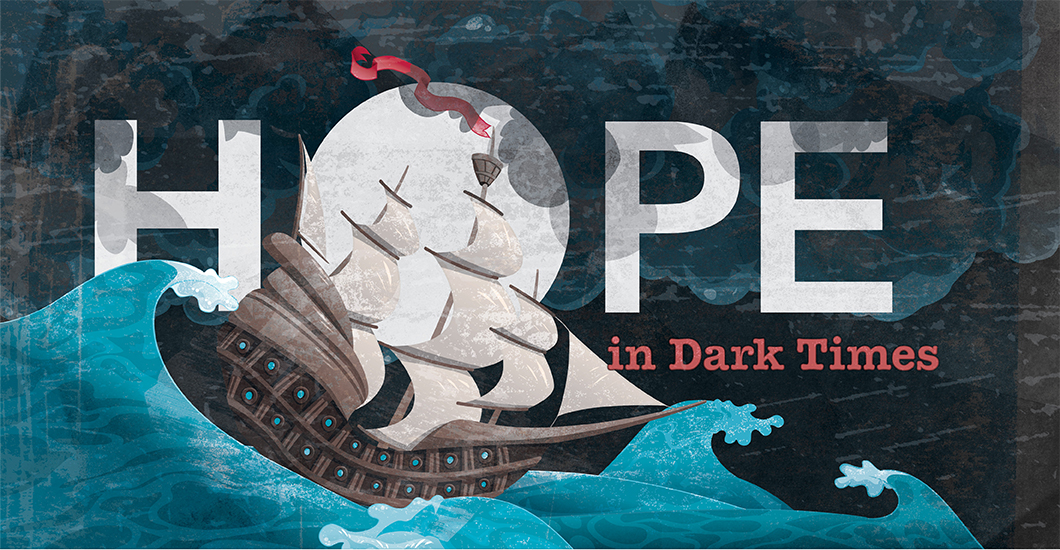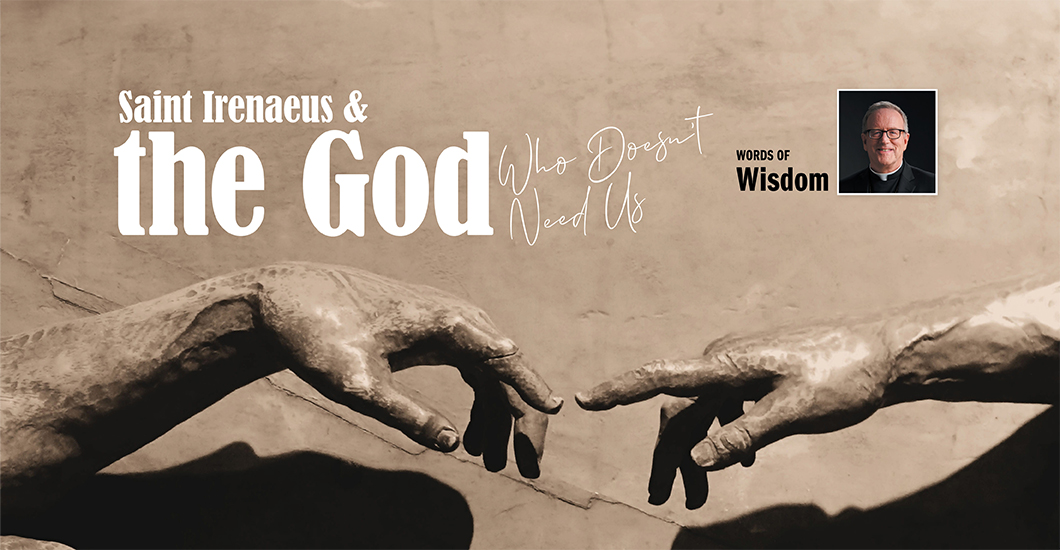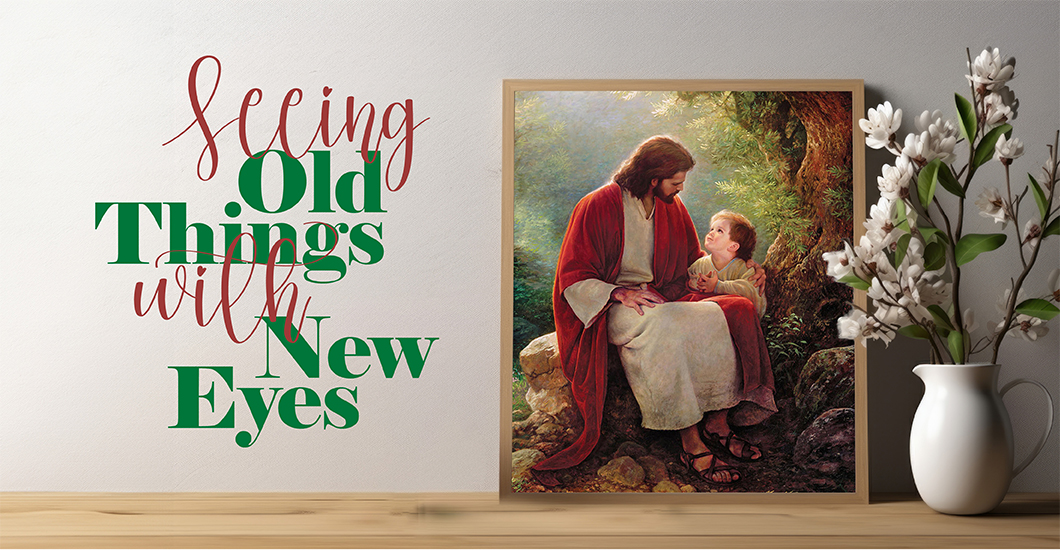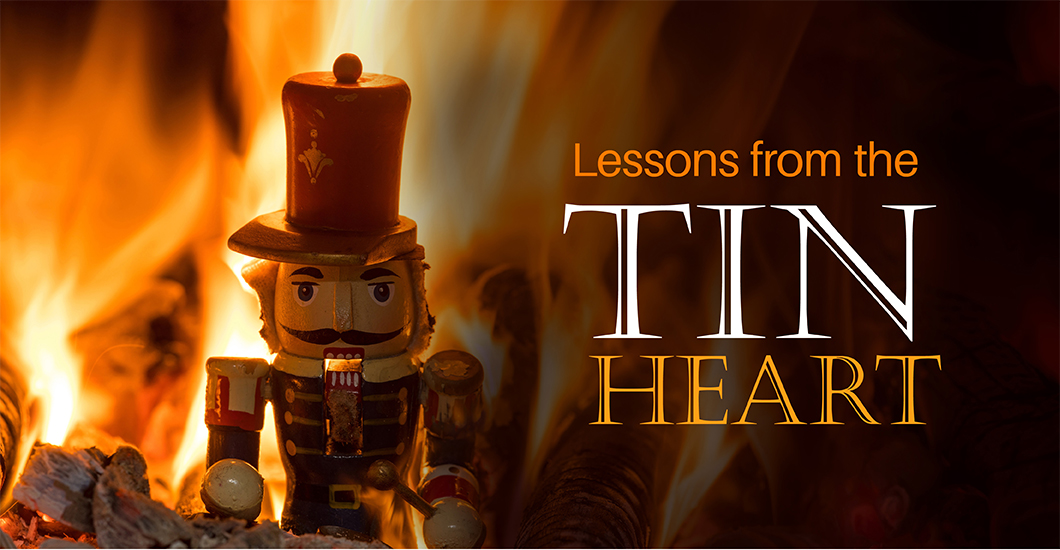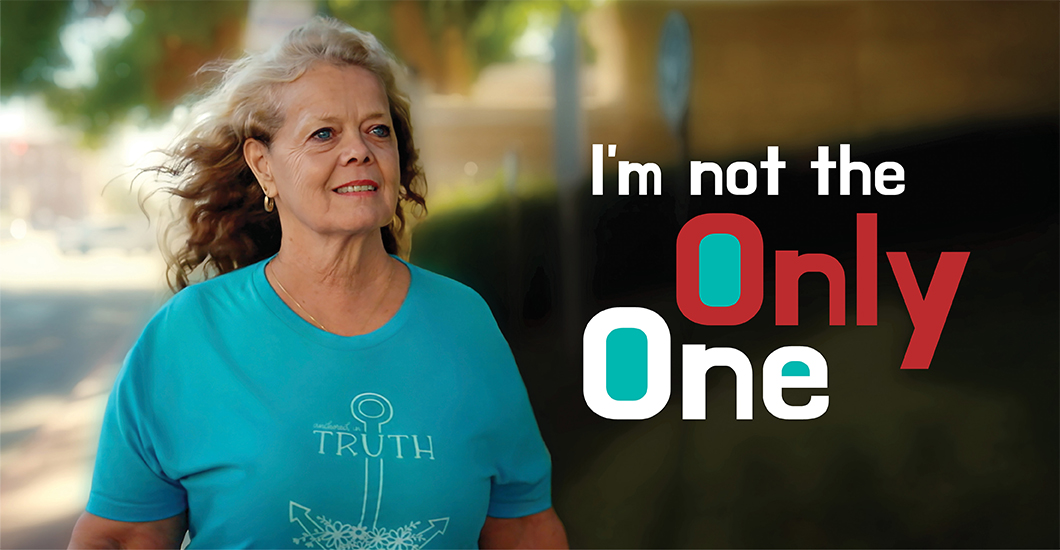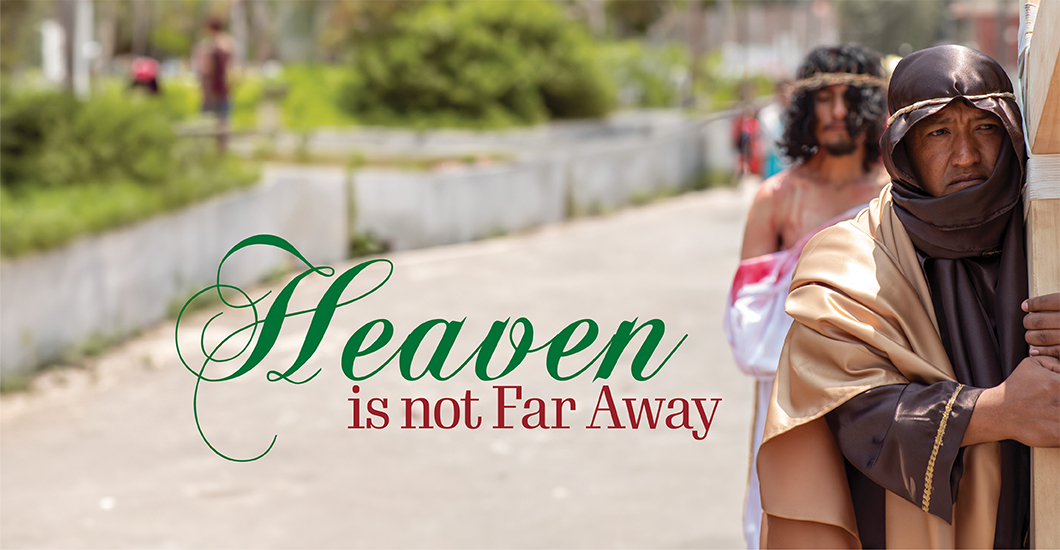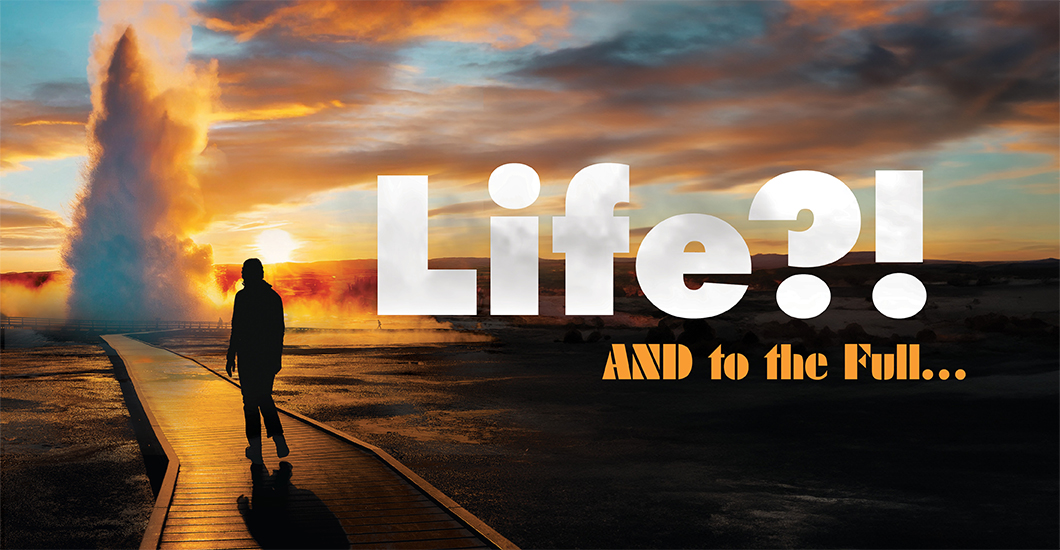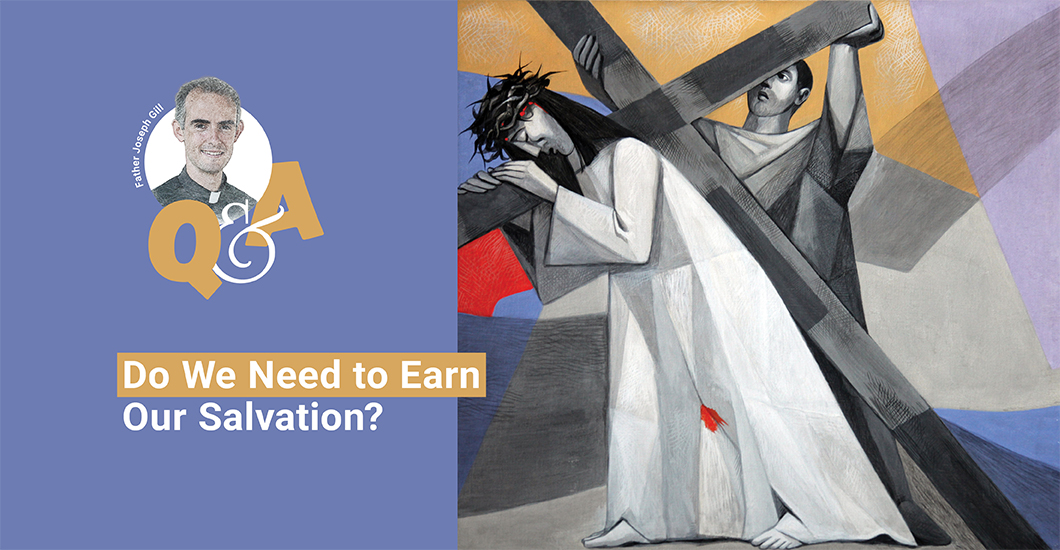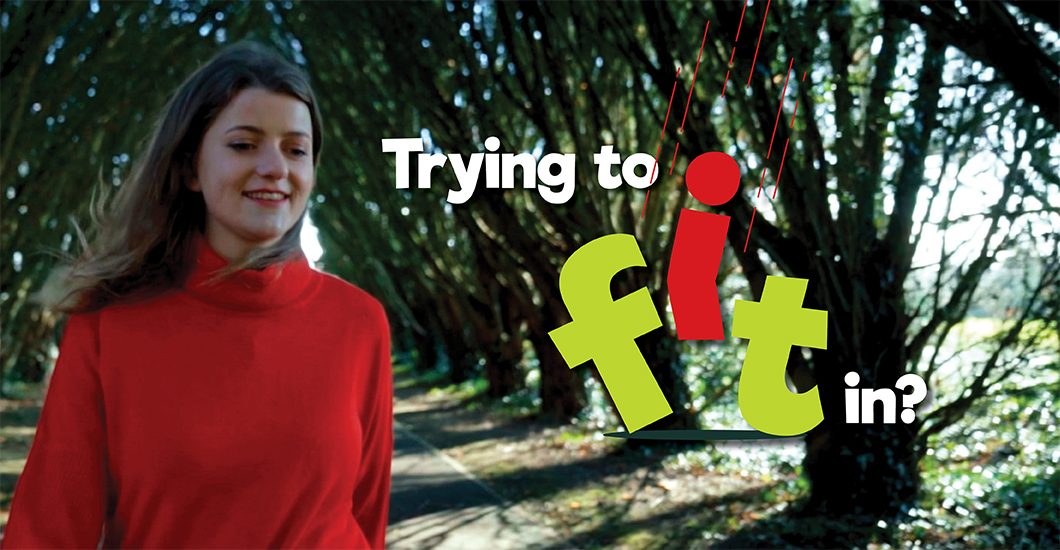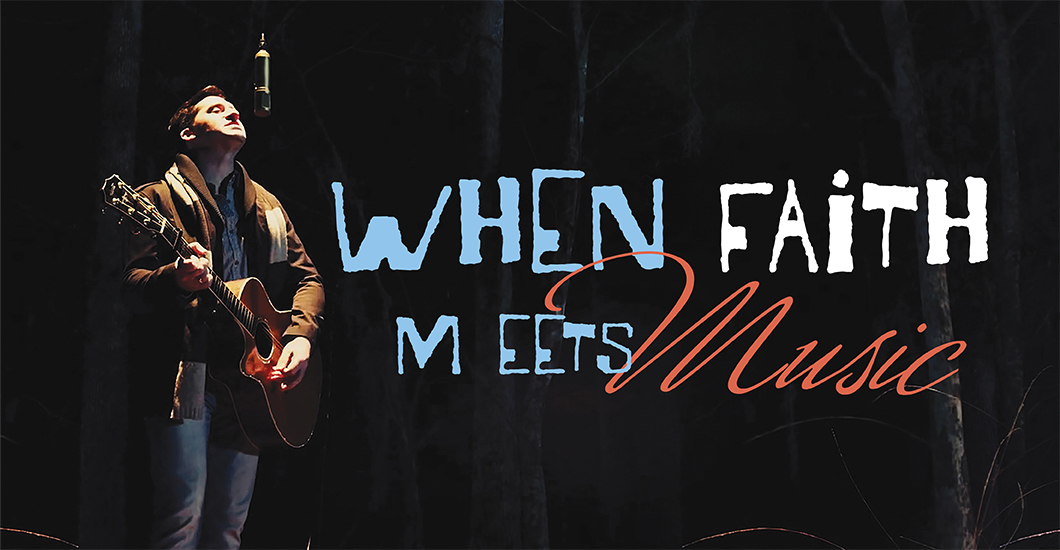Trending Articles
Wasting Time With God
We make a serious mistake by seeking the gifts rather than the giver of the gifts. We do not simply “use” God for what we can receive. If this was the case, then we would just give up on prayer and give up on God, which is what many people do. They yearn for that instant gratification that the world offers in so many ways. This is a very childish way to see prayer. We often look for God—when we want something and think we can turn on God—as easily as we get water from a tap.
We refuse to wait for fast food. We get frustrated in traffic. If the internet is too slow we start yelling at the screen! Let me be bold. Do not be afraid to “waste time with God” because it is not wasting time. Rather, it is the best possible use of our time. What better use of God’s gift of time could there be than to use it in praise of the Creator of time?
Think of the times when we received gifts of new clothes from our parents. Did we not make sure they saw us wearing them to show our appreciation? Do we not use things of this world for the purpose for which they were created? We use water to sustain our life and our world. We use the sunlight to receive warmth, grow things and store energy. We ought to use the gift of time to return God’s love, to develop the gifts He has given us and to use them to serve Him and our neighbours. Just because we do not see instant results we should not give up.
Think of the example of Saint Teresa of Calcutta. We know that for much of her life her prayer was dry and unrewarding. If she had given up, how much poorer would the world be? There is merit in persevering and looking beyond the rewards of this life and the quick fixes and the “buzz” we often expect. This explains why so many people turn to unhealthy behavior and get stuck in patterns of sin. When we receive stimulation from something (or someone) we can become addicted to the response. It develops an addiction in us and thereby we seek it more and more.
My dear brothers and sisters in Christ, have the courage to look beyond the gratifications of this world and the lies it offers you. Recall that wonderful and challenging quote from Pope Benedict XVI: “The world offers you comfort. But you were not made for comfort, you were made for greatness.”
Achieving this greatness means “wasting time” with God, letting Him take the first place in your life. Giving Him permission to be Lord and master of everything and not seeking to replace Him by the things of this world or the fleeting effects and comforts it offers to you.
In my ministry as a vocations director, I work with many young people in discernment. One of the first things I ask them is to learn to appreciate silence and simply spending time with the Lord. They tell me that it is hard to start with; we all know that.
Start small—give the Lord 10 minutes a day, a few times a week, then begin to increase the time. We cannot climb Mount Everest with one step. It takes many small steps. Start wasting time with God in small steps and then take bigger ones. I know a man who did this a few years ago. His five minutes with God turned to 10 minutes a day. Then after a few months 10 minutes turned to 30 minutes. Before he knew it, he was peacefully spending one hour a day in prayer. He is now a happy and peaceful priest, teaching others to pray, from his own experience.
The next time you feel bored or are tempted to pull out your phone—stop!
Think about why you are doing that. For what are you searching? What is the gap in your life you are trying to fill? What is the issue you are trying to run away from?
I recently saw an advertisement for a restaurant, which challenged families to put their mobile phones in a box at the table so they could spend the time talking and listening to each other. If they succeeded in doing this for the entire meal they would receive a free ice cream. Friends, spending time with Jesus is much more rewarding than ice cream. It reveals who is most important.
Instead of searching on Facebook, Instagram or Snapchat—search for God. Use the gift of the time He has given you, at this moment, to turn to Him. He will fulfil you more than anything or anyone ever could. Remember that you were made for greatness and that greatness can be achieved by “wasting time with God!”
Fr DAVID CARTWRIGHT is the executive officer of the Australian Catholic Diocesan Vocations Directors Conference. He serves in the Archbishop’s Personnel Advisory Board and is a chaplain to the Order of the Holy Sepulchre of Jerusalem with the rank of Knight Commander. Father David has been vocations director of the Archdiocese of Melbourne since 2014.
Related Articles
Several years ago, I participated in the annual meeting of the Academy of Catholic Theology, a group of about fifty theologians dedicated to thinking according to the mind of the Church. Our general topic was the Trinity, and I had been invited to give one of the papers. I chose to focus on the work of Saint Irenaeus, one of the earliest and most important of the fathers of the Church. Irenaeus was born around 125 in the town of Smyrna in Asia Minor. As a young man, he became a disciple of Polycarp who, in turn, had been a student of John the Evangelist. Later in life, Irenaeus journeyed to Rome and eventually to Lyons where he became Bishop after the martyrdom of the previous leader. Irenaeus died around the year 200, most likely as a martyr, though the exact details of his death are lost to history. His theological masterpiece is called Adversus Haereses (Against the Heresies), but it is much more than a refutation of the major objections to Christian faith in his time. It is one of the most impressive expressions of Christian doctrine in the history of the church, easily ranking with the De Trinitate of Saint Augustine and the Summa theologiae of Saint Thomas Aquinas. In my Washington paper, I argued that the master idea in Irenaeus’s theology is that God has no need of anything outside of Himself. I realize that this seems, at first blush, rather discouraging, but if we follow Irenaeus’s lead, we see how, spiritually speaking, it opens up a whole new world. Irenaeus knew all about the pagan gods and goddesses who stood in desperate need of human praise and sacrifice, and he saw that a chief consequence of this theology is that people lived in fear. Since the gods needed us, they were wont to manipulate us to satisfy their desires, and if they were not sufficiently honored, they could (and would) lash out. But the God of the Bible, who is utterly perfect in Himself, has no need of anything at all. Even in His great act of making the universe, He doesn’t require any pre-existing material with which to work; rather (and Irenaeus was the first major Christian theologian to see this), He creates the universe ex nihilo (from nothing). And precisely because He doesn’t need the world, He makes the world in a sheerly generous act of love. Love, as I never tire of repeating, is not primarily a feeling or a sentiment, but instead an act of the will. It is to will the good of the other as other. Well, the God who has no self-interest at all, can only love. From this intuition, the whole theology of Irenaeus flows. God creates the cosmos in an explosion of generosity, giving rise to myriad plants, animals, planets, stars, angels, and human beings, all designed to reflect some aspect of His own splendor. Irenaeus loves to ring the changes on the metaphor of God as artist. Each element of creation is like a color applied to the canvas or a stone in the mosaic, or a note in an overarching harmony. If we can’t appreciate the consonance of the many features of God’s universe, it is only because our minds are too small to take in the Master’s design. And His entire purpose in creating this symphonic order is to allow other realities to participate in His perfection. At the summit of God’s physical creation stands the human being, loved into existence as all things are, but invited to participate even more fully in God’s perfection by loving his Creator in return. The most oft-cited quote from Irenaeus is from the fourth book of the Adversus Haereses, and it runs as follows: “The glory of God is a human being fully alive.” Do you see how this is precisely correlative to the assertion that God needs nothing? The glory of the pagan gods and goddesses was not a human being fully alive, but rather a human being in submission, a human being doing what he’s been commanded to do. But the true God doesn’t play such manipulative games. He finds His joy in willing, in the fullest measure, our good. One of the most beautiful and intriguing of Irenaeus’ ideas is that God functions as a sort of benevolent teacher, gradually educating the human race in the ways of love. He imagined Adam and Eve, not so much as adults endowed with every spiritual and intellectual perfection, but more as children or teenagers, inevitably awkward in their expression of freedom. The long history of salvation is, therefore, God’s patient attempt to train His human creatures to be His friends. All of the covenants, laws, commandments, and rituals of both ancient Israel and the church should be seen in this light: not arbitrary impositions, but the structure that the Father God gives to order His children toward full flourishing. There is much that we can learn from this ancient master of the Christian faith, especially concerning the good news of the God who doesn’t need us!
By: Bishop Robert Barron
MoreA familiar picture, a routine job, but that day, something different caught her eye. On the corner of my bathroom vanity is an old photocopy of a drawing (original source long forgotten) in a clear, plastic frame. Years ago, one of my now adult sons had carefully framed it and set it on his dresser. It sat there until he grew up. When I re-homed, I transferred it to the corner of my bathroom vanity. On Saturdays, when I clean the bathrooms, I always lift the little frame and wipe the surfaces beneath it. Occasionally, I’ll swipe my cloth over the smooth sides of the frame to wash away any settled dust and invisible germs. But, like so many other familiar things, I rarely take notice of the image inside the old childish frame. One particular day, though, this picture caught me by surprise. I eagerly focused on the eyes of the two figures in the image—a child and Jesus. The expression on the little child’s face was one of loving adoration. The innocence of child-like wonder and unrestrained admiration resonated in his soft, penciled eyes. The child’s tender, upward gaze seemed not to notice the horror of the crown of thorns atop Christ’s head or the Cross crushing His right shoulder. In contrast, Jesus’s eyes peered down from beneath heavy lids and shadowed creases. The artist had managed to skilfully veil the depth of pain behind those eyes. Drawing Parallels I recalled a memory from my early years as a mother. I was big with baby number three. In the last days of pregnancy, I was attempting to soothe my aching body with a warm bath. I bounded my two young sons. They were full of energy and chatter as they moved around the tub and peppered me with questions. My privacy and physical discomfort were of no consequence to their boyish minds. I remembered the tears that rolled down my face as I tried, in vain, to get my sons to understand that I was hurting and in need of some space. But, they were simply little children who saw me as their ever-present mama, the one who kissed away boo-boos and always stood at the ready to hear their stories and meet their needs. They lacked understanding of the physical sacrifices that child-bearing demands. And I was too familiar to be seen by them as someone other than their strong, steadfast mother. I considered the parallels. Like my little boys, the pictured child saw Our Lord through his individual, human lens of experiences. He saw a loving Teacher, a faithful Friend, and a steadfast Guide. Christ obscured the intensity of His Passion—out of mercy and met the child’s gaze with tenderness and compassion. The Lord knew that the child was not ready to see the full measure of the suffering that his salvation had cost. Lost in the Darkness Our familiarity with things, people, and situations can make us blind to reality. We most often see through the clouded tunnel of old experiences and expectations. With so many stimuli competing for our attention, it is reasonable that we filter out the world around us. But, like the child in the picture and my own little ones, we tend to see what we want to see and ignore that which does not correspond with our perspectives. I believe that Jesus wants to heal our blindness. Like the blind man in the Bible who, on being touched by Jesus, said: “I see men, but they look like trees, walking” (Mark 8:22-26), most of us are not ready to see the ordinary with divine eyes immediately. Our eyes are still too accustomed to the darkness of sin, too attached to our self-reliance, too complacent in our worship, and too proud of our human endeavors. The Full Picture The price paid for our salvation on Calvary was not an easy price. It was sacrificial. Yet, like the child in the picture on my bathroom vanity, we focus only on Jesus’s tenderness and mercy. And because He is merciful, Jesus doesn’t rush; He allows us to come to a gradual maturity of faith. However, it is good to ask ourselves every once in a while if we sincerely render efforts towards spiritual maturity. Christ did not give His life so that we might remain in the fantasy world of continued blessings. He gave His life so that we might have eternal life, and we need to open our eyes to see that He bought it at the price of His blood. As we journey through Lent and especially Holy Week, we need to allow Christ to open our eyes little by little, surrender ourselves to His will, allow Him to remove our idols one by one, and strip away that which has become familiar in our lives so that we may begin to see the old blessings of worship, family, and holiness with new eyes of deep, abiding faith.
By: Tara K. E. Brelinsky
MoreA repeated whisper from above, numerous failed attempts…all solved by a children’s story! There is a wonderful tale by Hans Christian Andersen entitled The Steadfast Tin Soldier that I have taken immense pleasure in reading aloud to my daughter, and she, in listening to it. This one-legged tin soldier’s brief existence is marked by tribulation after tribulation. From falling from several storeys to nearly drowning to being swallowed by a fish like Jonah, the handicapped fighter comes to understand suffering quite quickly. Through it all, though, he does not hesitate, falter, or flinch. Oh, to be like the tin soldier! Discovering the Reason Literalists and pessimists might attribute his steadfastness to the fact that he is made of tin. Those who appreciate metaphor will say it is because he has a deep knowledge of his identity. He is a soldier, and soldiers do not let fear or anything, for that matter, steer them from their course. The trials wash over the tin soldier, but he remains unchanged. At times, he admits that if he were not a soldier, he would do such and such—like shed tears—but those things he did not do, for it would not be in line with who he was. In the end, he is cast into a stove where, reminiscent of Saint Joan of Arc, he is engulfed in flames. His remains are later found by the housemaid, reduced to—or one might say, transformed into—a perfectly shaped tin heart. Yes, the fires that he so resolutely endured molded him into love! Perhaps, all that is required to become steadfast is to know one's identity? The question then is, what is our identity? I am, and you are, too, a daughter (or son) of the King of the Universe. If only we know and never cease to claim this identity, we too can be steadfast on the journey toward becoming like Love Himself. If we go about our days knowing that we are princesses and princes gallivanting about our Father's castle, what would we fear? What would make us quake, turn back, or crumble? No falls or floods or flames could make us step aside from the path toward sainthood that has been so lovingly laid before us. We are beloved children of God, destined to become saints if we only stay the course. The trials will become joys because they will not pull us from our path but, if endured well, will ultimately transform us into that which we long to be! Our hope and joy can always remain, for even if all about us is hardship, we are still beloved, chosen, and made to be with the Father in Heaven for all eternity. Sorrows into Joy! When the Angel Gabriel, on his mission to receive Mary’s fiat, sees Mary's fear, he tells her: “Do not be afraid, for you have found favor with God.” (Luke 1:30) What glorious news! And how glorious that we, too, have found favor with God! He made us, loves us, and desires for us to be with Him always. So, we, like Mary, need not be afraid, no matter what difficulty comes our way. Mary steadfastly accepted all that came her way, knowing that His Providence is perfect and that the salvation of all mankind was at hand. She stood at the foot of the Cross in the moments of her greatest suffering and remained. In the end, though Mary’s heart was pierced by many swords, she was assumed into Heaven and crowned Queen of Heaven and Earth, to be with Love forever. Her steadfastness and loving endurance through suffering paved the way to her Queenship. Yes, the sorrow of the Pieta became the glory of the Assumption. The martyrdom of so many holy men and women made them a part of the Heavenly host praising the Lord forevermore. Like our Mother and the Saints, may we accept the grace to be steadfast, standing tall amidst sorrow, flames, and all other circumstances that try to divert us from the Lord’s open arms. May we be firmly rooted in our identity as children made in the Father's image. May we, like the renowned poet Tennyson once wrote: “Be strong in will to strive, to seek, to find, and not to yield!” May we, after it all, become like Love.
By: Molly Farinholt
MoreKeep your ears open to nature's faintest impulses…God is speaking to you all the time. God is constantly trying to communicate His message of love to us—in small things, in big things, in everything. Sometimes through the busyness of life, we can often miss what He is trying to say to us, both in the moment and after. Our loving God yearns for us to come to Him in the silence of our hearts. It is there that we can truly encounter Him and begin to grow in our relationship with Him—by listening to the “good teacher” (John 13:13). Saint Teresa of Calcutta taught: “God speaks in the silence of our hearts.” Scripture teaches us too, that it was only after the strong wind, earthquake, and fire had disappeared that Elijah was able to hear and understand God through the “still small voice” (1 Kings 19:9-18). The Power that Moves Us Recently, I went with my niece to a beach in North Wales; we wanted to fly a kite together. As the sea was going out, we unravelled the string on the sand. I threw the kite in the air as my niece set off running as fast as she could, holding the handle. The beach was partially enclosed by cliffs, so in spite of a strong wind on the waves, the kite did not stay in the air very long. She set off running again, this time even faster, and we tried again and again. After a few attempts, we realised that this wasn’t working. I looked around and saw that to the top part of the cliffs, there was an open field and a lot of land. So together, we climbed higher. As we began to unravel the string again, the kite began to move; my niece tightly held on to the handle. Before we knew it, the kite was fully extended and flying so high. The beauty of it this time was that we were both able to really enjoy this moment together with minimal effort. The key was the wind, but the power of the soaring kite was actualized in getting to a place where the wind could really blow. The joy, laughter, fun, and love shared in that moment were priceless. Time seemed to stand still. Learning to Fly High Later as I prayed, these memories came back to me, and I felt I was being taught powerful lessons in faith, specifically about prayer. In life, we can try to do things with our own strength. There is something in our fallen human nature about wanting to be in control. It is like being at the steering wheel in a car. We can trust God and allow Him to guide us, or we can exercise our free will. God allows us to take hold of the wheel if and when we choose to. But as we journey with Him, we see in fact, that He desires for us to not try and do it all on our own. He doesn’t want to do it all by Himself either. God desires for us to do everything—through Him, with Him, and in Him. The very act of praying is a gift in itself, but it requires our cooperation. It is a response to His call, but the choice to respond is ours. Saint Augustine powerfully teaches us to “acknowledge our voice in Him and His in us” (CCC 2616). This is not just true for prayer but for everything in life. True, Jesus sometimes allows us to labor “all night” and “catch nothing.” But this brings us to the realisation that it is only through His guidance that we will achieve what we desire. And infinitely more when we open our hearts to listen to Him. (Luke 5:1-11) If we are to fly high, we need the wind of the Holy Spirit, the breath of God, which transforms and lifts us up (John 20:22). Wasn’t it the wind of the Holy Spirit that descended upon the fearful disciples in the upper room at Pentecost and transformed them into faith-filled, fearless preachers and witnesses of Christ (Acts 1-2)? Seeking with a Whole Heart It is essential to recognize that faith is a gift that we must hold on tight to (1 Corinthians 12:4-11). Otherwise, we can become tangled up in difficult situations in the world that, without His grace, can be impossible for us to be free of. We must continue to reach higher heights through the power of the Holy Spirit—to “seek the Lord and live” (Amos 5:4, 6). Saint Paul exhorts us to “Rejoice always, pray constantly, give thanks in all circumstances; for this is the will of God in Christ Jesus for you.” (1 Thessalonians 5:16-18) Therefore, the call is for each believer to enter deeper into prayer by creating the space for silence, removing all distractions and blocks, and then allowing the wind of the Holy Spirit to really blow and move in our lives. God Himself invites us to this encounter with the promise that He will answer: “Call to me, and I will answer you and will tell you great and hidden things which you have not known.” (Jeremiah 33:3)
By: Sean Booth
MoreHave you been dreaming of a lasting peace that seems to somehow evade you no matter how hard you try? It is natural for us to constantly feel unprepared in an ever-changing, unpredictable world. In this scary and exhausting ordeal, it’s easy to become frightened—like a trapped animal with nowhere to run. If only we worked harder, longer, or were more in control, maybe we could catch up and finally be free to relax and find peace. I have lived this way for decades. Relying on myself and my efforts, I never really 'caught up.' I slowly realized it was an illusion to live that way. Eventually, I found a solution that has been revolutionary for me. It may feel the opposite of what is required, but trust me when I say this: Surrendering is the answer to this laborious search for peace. The Perfect Move As a Catholic, I know that I am supposed to give my heavy loads to the Lord. I also know that I am supposed to ‘let Jesus take the wheel' so that my burden would become lighter. My problem was that I did not know how to "give my burdens to the Lord." I would pray, beg, make the occasional deal, and once, even gave God a deadline (that one ended with me being schooled at a retreat by Saint Padre Pio: "Don't give God deadlines." Message received!). So, what are we to do? As humans, we base everything on a pixel of information we have at our disposal and an excruciatingly minute understanding of all factors, natural and supernatural. While I may have my thoughts on the best solutions, I hear Him loud and clear in my head: "My ways are not your ways, Barb, nor are my thoughts your thoughts," says the Lord. Here's the deal. God is God, and we are not. He knows everything—past, present, and future. We know squat. Of course, God, in His all-encompassing wisdom, understands things better than us, as well as the perfect move to make in time and history. How to Surrender If nothing in your life is working by all your human efforts, surrendering them is essential. But surrendering doesn’t mean looking at God as a vending machine whereby we put in our prayers and select how we want Him to answer. If, like me, you are struggling to surrender, I would love to share the antidote I found: the Surrender Novena. I was introduced to it a few years ago and am grateful beyond words. Servant of God, Father Don Dolindo Ruotolo, Spiritual Director to Padre Pio, received this Novena from Christ Jesus. Each day of the novena brilliantly speaks to every individual in ways only the Lord would know how to address. Rather than the same repetitive words each day, Christ, who knows us all too well, reminds us of all the ways we tend to get in the way of authentically surrendering, thus impeding the Master's work in His own way and time. The closing statement: "O Jesus, I surrender myself to you, take care of everything," is repeated ten times. Why? Because we need to believe and fully trust in Christ Jesus to perfectly take care of everything.
By: Barbara Lishko
MoreThrough the darkest valleys and toughest nights, Belinda heard a voice that kept calling her back. My mother walked out on us when I was around eleven. At the time, I thought that she left because she didn't want me. But in fact, after years of silently suffering through marital abuse, she couldn’t hold on anymore. As much as she wanted to save us, my father had threatened to kill her if she took us with her. It was too much to take in at such a young age, and as I was striving hard to navigate through this difficult time, my father started a cycle of abuse that would haunt me for years to come. Valleys and Hills To numb the pain of my father’s abuse and compensate for the loneliness of my mother’s abandonment, I started resorting to all kinds of ‘relief’ mechanisms. And at a point when I couldn’t stand the abuse anymore, I ran away with Charles, my boyfriend from school. I reconnected with my mother during this time and lived with her and her new husband for a while. At 17, I married Charles. His family had a history of incarceration, and he followed suit soon enough. I kept hanging out with the same bunch of people, and eventually, I, too, fell into crime. At 19, I got sentenced to prison for the first time—five years for aggravated assault. In prison, I felt more alone than I had ever been in my life. Everyone who was supposed to love and nurture me had abandoned me, used me, and abused me. I remember giving up, even trying to end my life. For a long time, I kept on spiraling downwards until I met Sharon and Joyce. They had given their lives to the Lord. Though I had no clue about Jesus, I thought I'd give it a try as I didn't have anything else. There, trapped inside those walls, I started a new life with Christ. Falling, Rising, Learning… About a year and a half into my sentence, I came up for parole. Somehow in my heart, I just knew I was going to make parole because I'd been living for Jesus. I felt like I was doing all the right things, so when the denial came back with a year set off, I just didn't understand. I started questioning God and was quite angry. It was at this time that I was transferred to another correctional facility. At the end of the church services, when the chaplain reached out for a handshake, I flinched and withdrew. He was a Spirit-filled man, and the Holy Spirit had shown him that I had been hurt. The next morning, he asked to see me. There in his office, as he asked about what had happened to me and how I was hurting, I opened up and shared for the first time in my life. Finally, out of prison and in private rehab, I started a job and was slowly getting a hold on my new life when I met Steven. I started going out with him, and we got pregnant. I remember being excited about it. As he wanted to make it right, we got married and started a family. That marked the beginning of probably the worst 17 years of my life, marked by his physical abuse and infidelity and the continuing influence of drugs and crime. He would even go on to hurt our kids, and this once sent me into a rage—I wanted to shoot him. At that moment, I heard these verses: “Vengeance is mine, I will repay.” (Romans 12:19) and “The Lord will fight for you” (Exodus 14:14), and that prompted me to let him go. Never a Criminal I was never able to be a criminal for long; God would just arrest me and try to get me back on track. In spite of His repeated efforts, I wasn't living for Him. I always kept God back, although I knew He was there. After a series of arrests and releases, I finally came home for good in 1996. I got back in touch with the Church and finally started building a true and sincere relationship with Jesus. The Church slowly became my life; I never really had that kind of a relationship with Jesus before. I just couldn't get enough of it because I started to see that it's not the things that I've done but who I am in Christ that's going to keep me on this road. But, the real conversion happened with Bridges to Life*. How can I Not? Even though I hadn’t been a participant in the program as an offender, being able to facilitate in those small groups was a blessing I hadn’t anticipated—one that would change my life in beautiful ways. When I heard other women and men share their stories, something clicked inside of me. It affirmed me that I was not the only one and encouraged me to show up time and again. I would be so tired and worn out from work, but I would walk into the prisons and just be rejuvenated because I knew that that was where I was supposed to be. Bridges to Life is about learning to forgive yourself; not only did helping others help me become whole, it also helped me heal…and I am still healing. First, it was my mother. She had cancer, and I brought her home; I looked after her for as long as she stayed until she passed away peacefully at my home. In 2005, my father’s cancer came back, and the doctors estimated he had at most six months. I brought him home too. Everybody told me not to take in this man after what he did to me. I asked: “how can I not?” Jesus forgave me, and I feel that God would want me to do this. Had I chosen to hold on to the bitterness or hatred toward my parents for the abandonment and the abuse, I don't know if they would have given their lives to the Lord. Just looking back over my life, I see how Jesus kept pursuing me and trying to help me. I was so resistant to feeling what was new, and it was so easy to stay in what was comfortable, but I am grateful to Jesus that I was able to finally completely surrender to Him. He is my Savior, He is my rock, and He is my friend. I just cannot imagine a life without Jesus.
By: Belinda Honey
MoreAre you quick to judge others? Are you hesitant to help someone in need? Then, it’s time to reflect! It was just another day for me. Returning from the market, weary from the day’s labor, collecting Roofus from the Synagogue school… However, something felt different that day. The wind was whispering in my ear, and even the sky was more expressive than usual. Commotion from a crowd in the streets confirmed for me that today, something was going to change. Then, I saw Him—His body so disfigured that I turned Roofus away from this fearful sight. The poor boy gripped my arm with all his might—he was terrified. The way this man, well, what was left of Him, was being handled must mean he had done something terrible. I could not bear to stand and watch, but as I began to leave, I was seized by a Roman soldier. To my horror, they commanded me to help this man to bear His heavy load. I knew this meant trouble. Despite resisting, they asked me to help Him. What a mess! I did not want to associate with a sinner. How humiliating! To carry a cross whilst all of them watched? I knew there was no escape, though, so I asked my neighbor Vanessa to take Roofus home because this trial would take a while. I walked over to Him—filthy, bloody, and disfigured. I wondered what he had done to deserve this. Whatever be it, this punishment was way too cruel. The bystanders were yelling out ‘blasphemer,’ ‘liar,’ and ‘King of the Jews,’ whilst others were spitting at him and abusing him. I had never been so humiliated and mentally tortured like this before. After taking only about ten to fifteen steps with him, he fell to the ground, face first. For this trial to end, he needed to get up, so I bent over to help him up. Then, in his eyes, I saw something that changed me. I saw compassion and love? How could this be? No fear, no anger, no hatred—just love and sympathy. I was taken aback, whilst with those eyes, He looked at me and held my hand to get back up. I could no longer hear or see the people around me. As I held the Cross on my one shoulder and Him on my other, I could only keep looking at Him. I saw the blood, the wounds, the spit, the dirt, everything that could no longer hide the divinity of His face. Now I heard only the beating of His heart and His labored breathing…He was struggling, yet so very, very strong. Amid all the noise of the people screaming, abusing, and scurrying about, I felt as though He was speaking to me. Everything else I had done till that point, good or bad, seemed pointless. When the Roman soldiers pulled Him from me to drag Him to the place of crucifixion, they shoved me aside, and I fell to the ground. He had to continue on His own. I lay there on the ground as people trampled over me. I did not know what to do next. All I knew was that Iife was never going to be the same again. I could no longer hear the crowd but only the silence and the sound of my heart beating. I was reminded of the sound of His tender heart. A few hours later, as I was about to get up to leave, the expressive sky from earlier began to speak. The ground beneath me shook! I looked ahead at the top of Calvary and saw Him, arms stretched and head bowed, for me. I know now that the blood splattered on my garment that day belonged to the Lamb of God, who takes away the sins of the world. He cleansed me with His blood. *** *** *** This is how I imagine Simon of Cyrene recalling his experience of the day he was asked to help Jesus carry the Cross to Calvary. He had probably heard very little of Jesus till that day, but I am very sure that he was not the same person after he helped the Savior carry that Cross. This Lenten season, Simon asks us to look into ourselves: Have we been too quick to judge people? Sometimes, we are too quick to believe what our instincts tell us about somebody. Just like Simon, we may let our judgments come in the way of helping others. Simon saw Jesus being scourged and assumed that He ought to have done something wrong. There might have been times when we let our presumptions about a person come in the way of loving them as Christ called us to. Are we hesitant to help some people? Shouldn’t we see Jesus in others and reach out to help them? Jesus asks us to love not only our friends but also strangers and enemies. Mother Teresa, being the perfect example of loving strangers, showed us how to see the face of Jesus in everyone. Who better to point at for an example of loving enemies than Jesus Christ Himself? He loved those who hated Him and prayed for those who persecuted Him. Like Simon, we may feel hesitant about reaching out to strangers or enemies, but Christ calls us to love our brothers and sisters just as He did. He died for their sins as much as He died for yours. Lord Jesus, thank You for giving us the example of Simon of Cyrene, who became a great witness for following Your Way. Heavenly Father, grant us the grace to become Your witnesses by reaching out to those in need.
By: Mishael Devassy
MoreLife seems too difficult sometimes, but if you hold on and trust, unexpected gifts can surprise you. “Protect us from all fear and anxiety as we wait in joyful hope for the coming of our Savior, Jesus Christ.” Being a lifelong Catholic, I’d recited this prayer at every Mass. Fear hasn’t been my companion for many years, though there was a time when it was. I’d come to know the “perfect love” described in 1 John 4:18, and was helped to live in the reality of He who conquers fear. I seldom experience anxiety at this point in my life, but one morning I did feel a sense of foreboding. I couldn’t quite put my finger on the cause. Recently, tripping on a curb resulted in a hard fall, and I was still feeling discomfort in my hip and pelvis. Sharp pains resurfacing every time I lifted my arms reminded me that my shoulders still needed more time to heal. New job stresses and the sudden death of a dear friend’s son added to my angst. The state of our world alone can cause significant distress for anyone who spends much time digesting the headlines. Despite the unknown origin of my unease, I knew how to respond. Closing my eyes, I surrendered the heavy burden I was feeling. Angels Working Overtime The next day, while I was driving to a patient’s home, a tropical storm developed unexpectedly. Traffic was heavy, and despite beaming headlights and decreasing speed, visibility was obscured by pounding sheets of rain. Out of nowhere, I felt another vehicle’s impact, pushing my car into the right lane! Surprisingly calm, I steered to the emergency lane, despite a now flattened tire’s drag. A fire rescue vehicle soon pulled up; a paramedic who hopped into my car to avoid the torrential downpour inquired if I was hurt. No...I wasn’t! That seemed highly unlikely since it had only been a few days since the lingering aftereffects of my fall had ceased. I’d prayed for protection that morning before setting out, knowing what the weather predicted. Clearly, the angels had been working overtime; cushioning first my fall, then the slam from this crash. With my car now in the body shop and insurance covering the repairs, my husband Dan and I packed for our long-planned vacation. Just before we left, I was disheartened to hear that our insurer was almost certainly going to total my car! Only five years old and in pristine condition prior to the crash, its Blue Book value currently was a mere $8,150. That wasn’t good news! We intended to keep this fuel-efficient hybrid as long as it would keep running, even purchasing an extended warranty to ensure our plan. Taking a deep breath, I again acted on what I’ve learned to do in situations beyond my control: I released it to God and asked for His intervention. Unfailing Prayer Once in Salt Lake City, we secured our rental car and were soon driving through the beautiful Grand Teton National Park. Pulling into the parking garage of the hotel that evening, I uncharacteristically backed into a narrow spot. While Dan unloaded our luggage, I noticed a screw in one tire. My husband’s concern about the puncture prompted him to call various service centers. Finding none open on Sundays, we decided to take our chances driving. The next morning, we said a prayer and set out, hoping the tire would hold while driving on the narrow mountain roads in and out of Yellowstone. Fortunately, the day was uneventful. Arriving at the Hampton Inn, where Dan had made a reservation months before, our jaws dropped! Right next door was a tire repair shop! Monday morning’s quick service meant we were on the road in less than an hour! It turned out that the tire was leaking, so the repair averted a possible blowout—a blessing since we ended up driving over 1200 miles that week! My body shop, meanwhile, authorized further investigation for “hidden damages” from the accident. If found, the cost would exceed the car’s value and definitely lead to totaling! Praying daily, I yielded the outcome and waited. Finally, I was informed that the cost of the repairs had come in just under the wire...they would fix my car after all! (A few weeks later, as I went to pick up my refurbished car, I found that the cost had indeed exceeded the Blue Book value, but my prayer was answered too!) A Spectacular Blessing Another example of God’s providential care came as we continued on our trek into Yellowstone National Park! The parking lot was jammed when we arrived. We circled aimlessly when suddenly, a spot was available near the front! We hurriedly parked and walked over to find out that the next eruption of the Old Faithful* was expected in ten minutes. With just enough time to get to the viewing area, the geyser exploded! We traced the path of the boardwalk through the various geological formations, springs, and geysers. My outdoors-loving husband busily snapped pictures, one after another! Marveling at the amazing spectacle surrounding us, I glanced at my watch...the next eruption of Old Faithful was expected soon. Sprays burst as expected into the air, this time not obscured by tourists since we were on the back side of the geyser! Feeling grateful, I thanked God for the day’s blessings—first, the tire shop’s perfect location, then the good news from the insurance company about my car, and finally, the amazing spectacle of nature. Reflecting on God’s active presence, I prayed: “Thank you for loving us, Lord! I know You love every other person on earth just as much, but Dan connects with You so strongly in Creation, would You reveal Yourself to him once more?” Continuing to amble along, my husband’s camera battery died. Sitting while he replaced it, I heard a strange sound. I turned around to see a huge explosion. It was spectacular—the Beehive was twice as high as Old Faithful! Looking into our guidebook, we read that this geyser was one of the best, but so unpredictable that eruptions could occur from anywhere between 8 hours to up to 5 days...but, it was at the moment we were there that it happened! For sure, God was manifesting Himself to my husband just as I’d asked! Our final stop featured several geysers where a gentleman offered to take our picture. The moment he clicked the shutter, that geyser let loose! We experienced yet another unexpected gift of God’s perfect timing and blessing! As if basking in the beauty of the incredible vistas, waterfalls, mountains, lakes, and rivers wasn’t enough, we also experienced beautiful weather! Despite the prediction of rain every day, we encountered only a few brief showers and lovely temperatures day and night! I had come full circle from my recent stress and anxiety. Surrender led to an immersion in Jesus’ care as well as in the awesome wonder of our Creator! That prayer I had said so many times at Mass was certainly answered! I had been protected, both from fear and serious injury, while being released from anxiety. Waiting had indeed resulted in joyful hope….the anchor for my soul.
By: Karen Eberts
MoreQ: My Protestant friends say that Catholics believe we need to earn our salvation. They say that salvation is by faith alone and that we can’t add to anything that Jesus already did for us on the Cross. But don’t we have to do good works to make it to Heaven? A: This is a pretty big misunderstanding for both Protestants and Catholics. It may seem to be theological minutiae, but it actually has a huge consequence in our spiritual life. The truth is this: We are saved by living faith—our belief in Jesus Christ that is lived out in our words and actions. We must be clear—we do not need to earn our salvation, as if salvation was a prize if we reach a certain level of good deeds. Consider this: who was the first one to be saved? According to Jesus, it was the Good Thief. While he was being rightly crucified for his evil deeds, he cried out to Jesus for mercy, and the Lord promised him: “Truly I tell you, today you will be with me in Paradise.” (Luke 23:43) So, salvation consists in that radical faith, trust, and surrender to what Jesus did on the Cross to purchase mercy. Why is this important? Because many Catholics think that all we have to do to be saved is ‘be a good person’—even if the person doesn’t actually have a living relationship with the Lord. I can’t begin to tell you how many people tell me something like: “Oh, my uncle never went to Mass or prayed, but he was a nice man who did many good things in his life, so I know he’s in Heaven.” While we certainly hope that the uncle is saved by God’s mercy, it isn’t our kindness or good works that save us, but the saving death of Jesus on the Cross. What would happen if a criminal was put on trial for a crime, but he said to the judge, “Your Honor, I did commit the crime, but look at all the other good things I did in my life!” Would the judge let him off? No—he would still have to pay for the crime he committed. Likewise, our sins had a cost—and Jesus Christ had to pay for them. This payment of the debt of sin is applied to our souls through faith. But, faith is not just an intellectual exercise. It must be lived out. As Saint James writes: “Faith without works is dead” (2:24). It’s not enough just to say: “Well, I believe in Jesus, so I can now sin as much as I want.” On the contrary, precisely because we have been forgiven and become heirs to the Kingdom, we must then act like Kingdom-heirs, like sons and daughters of the King. This is very different than trying to earn our salvation. We don’t do good works because we hope to be forgiven—we do good works because we are already forgiven. Our good deeds are a sign that His forgiveness is alive and active in our lives. After all, Jesus tells us: “If you love Me, you will keep My commandments.” (John 14:15) If a husband loves his wife, he will seek concrete ways to bless her—giving her flowers, doing the dishes, writing her a love note. He would never say: “Well, we’re married, and she knows I love her, so I can now do whatever I want.” Likewise, a soul that has known the merciful love of Jesus will naturally want to please Him. So, to answer your question, Catholics and Protestants are actually much closer on this issue than they know! We both believe that we are saved by faith—by a living faith, which is expressed in a life of good works as a sign of thanksgiving for the lavish, free gift of salvation that Christ won for us on the Cross.
By: Father Joseph Gill
MoreAs a teenager, I did what every teen tries to do—I tried to fit in. I had this feeling, though, that I was unlike my peers. Somewhere along the way, I realized that it was my faith that made me different. I resented my parents for giving me this thing that made me stand out. I became rebellious and started to go to parties, discos, and nightclubs. I didn't want to pray anymore. I just wanted the whole excitement of putting on makeup, dressing up, daydreaming about who's going to be at the parties, dancing all night long, and most of all, just ‘fitting in there.’ But, coming home at night, sitting on my bed all by myself, I felt empty inside. I hated who I'd become; it was a total paradox where I didn't like who I was, and yet I didn't know how to change and become myself. On one of those nights, crying by myself, I remembered the simple happiness that I had as a child when I knew that God and my family loved me. Back then, that was all that mattered. So, for the first time in a long time, I prayed. I cried to Him and asked Him to bring me back to that happiness. I kind of gave Him an ultimatum that if He did not reveal Himself to me in that next year, I would never return to Him. It was a very dangerous prayer but, at the same time, a very powerful one. I said the prayer and then totally forgot about it. A few months later, I was introduced to the Holy Family Mission, a residential community where you come to learn your faith and know God. There was daily prayer, Sacramental life, frequent Confession, daily Rosary, and observation of the Holy Hour. I remember thinking, “That is way too much prayer for a single day!” At that point, I could hardly even give five minutes of my day to God. Somehow, I ended up applying for the Mission. Every single day, I would sit in prayer in front of the Eucharistic Lord and ask Him who I was and what the purpose of my life was. Slowly but surely, the Lord revealed Himself to me through the Scriptures and from spending time in silence with Him. I gradually received healing from my inner wounds and grew in prayer and relationship with the Lord. From the rebellious teenage girl who felt totally lost, to the joyous daughter of God, I underwent quite the transformation. Yes, God wants us to know Him. He reveals Himself to us because He faithfully answers every single prayer that we raise to Him.
By: Patricia Moitie
MoreLatest Articles
Several years ago, I participated in the annual meeting of the Academy of Catholic Theology, a group of about fifty theologians dedicated to thinking according to the mind of the Church. Our general topic was the Trinity, and I had been invited to give one of the papers. I chose to focus on the work of Saint Irenaeus, one of the earliest and most important of the fathers of the Church. Irenaeus was born around 125 in the town of Smyrna in Asia Minor. As a young man, he became a disciple of Polycarp who, in turn, had been a student of John the Evangelist. Later in life, Irenaeus journeyed to Rome and eventually to Lyons where he became Bishop after the martyrdom of the previous leader. Irenaeus died around the year 200, most likely as a martyr, though the exact details of his death are lost to history. His theological masterpiece is called Adversus Haereses (Against the Heresies), but it is much more than a refutation of the major objections to Christian faith in his time. It is one of the most impressive expressions of Christian doctrine in the history of the church, easily ranking with the De Trinitate of Saint Augustine and the Summa theologiae of Saint Thomas Aquinas. In my Washington paper, I argued that the master idea in Irenaeus’s theology is that God has no need of anything outside of Himself. I realize that this seems, at first blush, rather discouraging, but if we follow Irenaeus’s lead, we see how, spiritually speaking, it opens up a whole new world. Irenaeus knew all about the pagan gods and goddesses who stood in desperate need of human praise and sacrifice, and he saw that a chief consequence of this theology is that people lived in fear. Since the gods needed us, they were wont to manipulate us to satisfy their desires, and if they were not sufficiently honored, they could (and would) lash out. But the God of the Bible, who is utterly perfect in Himself, has no need of anything at all. Even in His great act of making the universe, He doesn’t require any pre-existing material with which to work; rather (and Irenaeus was the first major Christian theologian to see this), He creates the universe ex nihilo (from nothing). And precisely because He doesn’t need the world, He makes the world in a sheerly generous act of love. Love, as I never tire of repeating, is not primarily a feeling or a sentiment, but instead an act of the will. It is to will the good of the other as other. Well, the God who has no self-interest at all, can only love. From this intuition, the whole theology of Irenaeus flows. God creates the cosmos in an explosion of generosity, giving rise to myriad plants, animals, planets, stars, angels, and human beings, all designed to reflect some aspect of His own splendor. Irenaeus loves to ring the changes on the metaphor of God as artist. Each element of creation is like a color applied to the canvas or a stone in the mosaic, or a note in an overarching harmony. If we can’t appreciate the consonance of the many features of God’s universe, it is only because our minds are too small to take in the Master’s design. And His entire purpose in creating this symphonic order is to allow other realities to participate in His perfection. At the summit of God’s physical creation stands the human being, loved into existence as all things are, but invited to participate even more fully in God’s perfection by loving his Creator in return. The most oft-cited quote from Irenaeus is from the fourth book of the Adversus Haereses, and it runs as follows: “The glory of God is a human being fully alive.” Do you see how this is precisely correlative to the assertion that God needs nothing? The glory of the pagan gods and goddesses was not a human being fully alive, but rather a human being in submission, a human being doing what he’s been commanded to do. But the true God doesn’t play such manipulative games. He finds His joy in willing, in the fullest measure, our good. One of the most beautiful and intriguing of Irenaeus’ ideas is that God functions as a sort of benevolent teacher, gradually educating the human race in the ways of love. He imagined Adam and Eve, not so much as adults endowed with every spiritual and intellectual perfection, but more as children or teenagers, inevitably awkward in their expression of freedom. The long history of salvation is, therefore, God’s patient attempt to train His human creatures to be His friends. All of the covenants, laws, commandments, and rituals of both ancient Israel and the church should be seen in this light: not arbitrary impositions, but the structure that the Father God gives to order His children toward full flourishing. There is much that we can learn from this ancient master of the Christian faith, especially concerning the good news of the God who doesn’t need us!
By: Bishop Robert Barron
MoreQ – How do I know if my love for sports is idolatry? I practice four hours a day, hoping to get a college scholarship, and I think about it all the time, following the professional teams closely. I love God, but He just doesn’t hold my interest like sports do. When does my passion cross the line into idolatry? A – I, too, am passionate about sports. I played baseball in high school and college, and even as a priest, I continue to play Ultimate Frisbee, soccer, and American football. Sports can be “the field of virtue,” as Saint John Paul II once said. But in our modern world, we do often hold sports in very high esteem…perhaps too high. My college baseball coach had a great saying: “Nothing in sports is eternal.” That helped me keep everything in perspective. Winning the championship or losing the game won’t make a bit of difference in eternity. It is meant to be fun, giving us a chance to exercise and practice teamwork, discipline, courage, and fairness—but there are no eternal consequences to an athletic contest. So how do we keep sports in its proper perspective? We look at three things to know if sports (or anything else) has become an idol: First, time. How much time do we spend on it versus how much time do we spend with the Lord? I once challenged a class of teens to spend ten minutes per day in prayer, and one boy told me that was impossible because he played video games. I asked him how much he played, and he told me that he often played eight to eleven hours per day! If a person doesn’t have time for a serious prayer life—fifteen to twenty minutes minimum, every day, because they are spending that time on sports, then it is indeed idolatry. This doesn’t mean that it has to be perfectly equal—if you practice for two hours per day, you don’t necessarily need to pray for two hours per day. But there does need to be enough time in your life to have a solid prayer life. This includes making sure that our sports life does not conflict with Sunday worship. My brother, an excellent ballplayer, once had to miss an important tryout because it was being held on Easter Sunday morning. Whatever we do instead of Sunday Mass becomes our idol! This also includes making time an integral part of our sacrifice for the Lord. Do you have the time to volunteer at your church or a local charity? Do you have enough time to perform your daily duties well (to do your studies to the best of your ability, to do household chores, and to be a good son/daughter and friend)? If sports take up so much time that there is no time to give back to others, then we are out-of-balance. Second, money. How much money do we spend on sports games, equipment, trainers, gym memberships—versus how much money do we give to the church, charities, or the poor? Where we spend our money determines what our priorities are. Again, this isn’t necessarily a perfectly equal ratio—but generosity is a major part of belonging to the Lord, from Whom all good gifts come. Finally, enthusiasm. In America, where I live, American football is our national religion. It amazes me to see grown men sit outside in sub-freezing temperatures at a Green Bay Packers game, with their shirts off and their chests painted team colors, wearing a foam hat in the shape of cheese (it’s a weird tradition!), cheering at the top of their lungs…and many of these same men would be bored in church on Sunday morning, barely mumbling the Mass responses (if they attended at all). What makes you excited? Are you more excited for a sports contest that won’t be remembered in a year or for the challenge and joy of the epic quest for holiness, the chance to advance the Kingdom of God, the battle for souls which has eternal consequences, the pursuit of an eternal victory which will make your trophies pale in comparison? If you find that your enthusiasm for sports is still stronger, consider what Christianity truly is. There is literally nothing more exciting and adventurous on earth than the quest to become a saint. It involves many of the same qualities as a good athlete: self-denial, dedication, and single-minded pursuit of a goal. But our goal has eternal reverberations! Considering these three things—where you spend your time, how you spend your money, and what makes you excited. These can provide valuable insight as to when something has become an idol to us.
By: Father Joseph Gill
MoreWhen a terrible loss led Josh Blakesley into the light, music from his soul became a balm to many bleeding hearts. Growing up in the small town of Alexandria, Josh was a carefree child. He grew up listening to his Dad’s music; two elder sisters with a great music collection was a bonus that nurtured his musical taste. Without professional training or theoretical inputs, in an age with no internet and YouTube, Josh had what he would later call ‘a side entry’ into the world of music. Starting on the drums and simultaneously learning to sing, he was enamored by the likes of Don Henley and Phil Collins, following their legendary works through magazines and books. With his mother, though, Church was a non-negotiable matter. Thanks to her insistence, he went to Mass every Sunday. But he would leave God there and live the rest of his life on a totally different plane. Diving Deeper They met in Spanish class when he was 15, and unlike any other 15-year-old, she took him along to a prayer meeting. This was new and different from anything he had experienced before. Teenagers his age were coming together to worship the Lord. This worship experience was modern and engaging…with music, talks, and skits by people his age! He was intrigued, but he wouldn’t have kept coming back every week if Jenny hadn’t asked him to. Several months later, Jenny was hit by a drunk driver and killed in an accident. Her loss was a huge blow to the entire community. As he struggled with the grief of losing her, it triggered a realization that life here is finite, and there must be purpose in it, a reason that we are living. From that very moment, he began a journey, searching for answers to the questions that fascinated him…‘What is the reason for me? What is the purpose of what I’m doing right now? Why has God put me on this planet? What’s my role while I’m here?’ He started diving more into why we were here on this planet. In realizing that his gifts were from God, and in searching for a purpose in the use of these gifts, he realized that he wanted to give back to God and return the love. A Bolt of Realization He started playing music for Mass and getting involved in the liturgy. As he puts it: “There has been a faith part to my music and a music part to my faith as well. Those are still ingrained. I pray through music a lot”. And it is this experience of prayer that he tries to hand over to his brethren through writing and playing music. The “awesome and overwhelming” experience of leading people into worship and hearing them singing along makes him whisper so often: “The Lord is moving right now, and I don’t have to work.” Bridging the Gap Josh is now a full-time singer, songwriter, producer, music director, husband, and dad. Even while leading the music at Mass every Sunday, Josh knows that Mass can happen without music—what a musician does at Mass doesn’t bring Jesus any greater into the room; He is there regardless. What a musician can do is “elevate the worship of the faithful by bringing some extra beauty through music.” This indeed, is one of his life goals—to try and bridge that gap and bring quality music into the liturgy. But he doesn’t stop there; in addition to adding beauty to the Sacramental experience, he goes another mile to bring God to the people. Right from His Heart As a Catholic musician, Josh writes songs for the Mass and writes from the heart. Sometimes, when it comes out, it might not be out rightly Mass-material, but what comes out is still a tribute to God for the gift of music. He relates that his song Even in This was such an experience right from his heart. The Church community he was part of had just lost a teen, and seeing them go through the pain, the tragedy, and the devastation took him back to his own experience of losing a dear friend in his teenage years. Diving into the pain, he wrote that even in these darkest nights, God is with us. In the ‘valleys of pain’, in the ‘shattered, broken things’, in the ' hurt you cannot hide’ and the ‘fear you cannot fight’, he reassures his listeners that though you cannot see God, “You are not alone.” This is one message Josh wants to repeat to the world: “God is moving with you.”
By: Josh Blakesley
MoreA familiar picture, a routine job, but that day, something different caught her eye. On the corner of my bathroom vanity is an old photocopy of a drawing (original source long forgotten) in a clear, plastic frame. Years ago, one of my now adult sons had carefully framed it and set it on his dresser. It sat there until he grew up. When I re-homed, I transferred it to the corner of my bathroom vanity. On Saturdays, when I clean the bathrooms, I always lift the little frame and wipe the surfaces beneath it. Occasionally, I’ll swipe my cloth over the smooth sides of the frame to wash away any settled dust and invisible germs. But, like so many other familiar things, I rarely take notice of the image inside the old childish frame. One particular day, though, this picture caught me by surprise. I eagerly focused on the eyes of the two figures in the image—a child and Jesus. The expression on the little child’s face was one of loving adoration. The innocence of child-like wonder and unrestrained admiration resonated in his soft, penciled eyes. The child’s tender, upward gaze seemed not to notice the horror of the crown of thorns atop Christ’s head or the Cross crushing His right shoulder. In contrast, Jesus’s eyes peered down from beneath heavy lids and shadowed creases. The artist had managed to skilfully veil the depth of pain behind those eyes. Drawing Parallels I recalled a memory from my early years as a mother. I was big with baby number three. In the last days of pregnancy, I was attempting to soothe my aching body with a warm bath. I bounded my two young sons. They were full of energy and chatter as they moved around the tub and peppered me with questions. My privacy and physical discomfort were of no consequence to their boyish minds. I remembered the tears that rolled down my face as I tried, in vain, to get my sons to understand that I was hurting and in need of some space. But, they were simply little children who saw me as their ever-present mama, the one who kissed away boo-boos and always stood at the ready to hear their stories and meet their needs. They lacked understanding of the physical sacrifices that child-bearing demands. And I was too familiar to be seen by them as someone other than their strong, steadfast mother. I considered the parallels. Like my little boys, the pictured child saw Our Lord through his individual, human lens of experiences. He saw a loving Teacher, a faithful Friend, and a steadfast Guide. Christ obscured the intensity of His Passion—out of mercy and met the child’s gaze with tenderness and compassion. The Lord knew that the child was not ready to see the full measure of the suffering that his salvation had cost. Lost in the Darkness Our familiarity with things, people, and situations can make us blind to reality. We most often see through the clouded tunnel of old experiences and expectations. With so many stimuli competing for our attention, it is reasonable that we filter out the world around us. But, like the child in the picture and my own little ones, we tend to see what we want to see and ignore that which does not correspond with our perspectives. I believe that Jesus wants to heal our blindness. Like the blind man in the Bible who, on being touched by Jesus, said: “I see men, but they look like trees, walking” (Mark 8:22-26), most of us are not ready to see the ordinary with divine eyes immediately. Our eyes are still too accustomed to the darkness of sin, too attached to our self-reliance, too complacent in our worship, and too proud of our human endeavors. The Full Picture The price paid for our salvation on Calvary was not an easy price. It was sacrificial. Yet, like the child in the picture on my bathroom vanity, we focus only on Jesus’s tenderness and mercy. And because He is merciful, Jesus doesn’t rush; He allows us to come to a gradual maturity of faith. However, it is good to ask ourselves every once in a while if we sincerely render efforts towards spiritual maturity. Christ did not give His life so that we might remain in the fantasy world of continued blessings. He gave His life so that we might have eternal life, and we need to open our eyes to see that He bought it at the price of His blood. As we journey through Lent and especially Holy Week, we need to allow Christ to open our eyes little by little, surrender ourselves to His will, allow Him to remove our idols one by one, and strip away that which has become familiar in our lives so that we may begin to see the old blessings of worship, family, and holiness with new eyes of deep, abiding faith.
By: Tara K. E. Brelinsky
More
